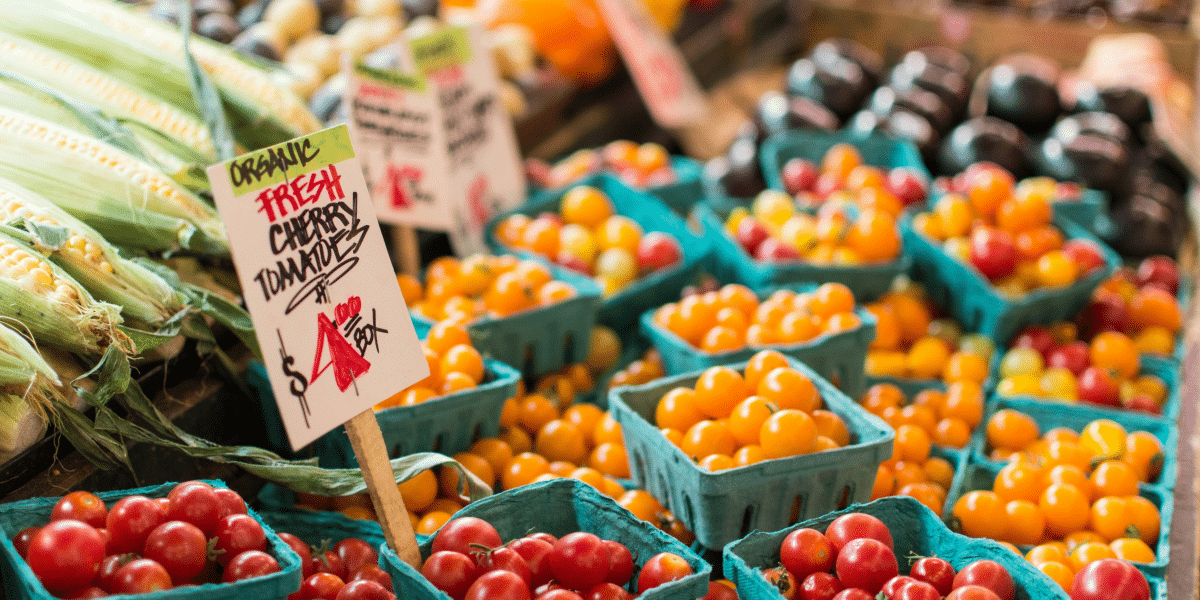In recent years, farmer’s markets have surged in popularity across the United States. They draw crowds to local venues filled with fresh produce, artisanal products, and handmade goods. Beyond being a source of fresh food, these markets have become cherished gathering places that reflect a growing interest in sustainable practices and community connection. The appeal of farmer’s markets today goes far beyond shopping. They benefit communities’ health, economy, and spirit.
Supporting Local and Sustainable Farming Practices
One of the most significant factors behind the popularity of farmer’s markets is the consumer shift toward sustainable and locally sourced foods. In a world where much of our food travels long distances, farmer’s markets offer a direct way to connect with local farmers.
Buying from local farms also helps consumers lower their carbon footprint. When food is grown nearby, it travels shorter distances, requiring less fuel and reducing overall emissions. This aligns with a broader movement toward sustainability and environmental responsibility, making farmer’s markets appealing to eco-conscious shoppers.
Freshness and Flavor Like No Other
A standout feature of farmer’s markets is the exceptional quality of produce. Unlike grocery store produce, fruits and vegetables at farmer’s markets are typically harvested just before market day. This means that tomatoes, cucumbers, peppers, and other produce are at their peak ripeness and flavor, offering a taste that’s difficult to match with supermarket options.
Additionally, many farmers at these markets offer heirloom and specialty varieties not commonly found in regular grocery stores. These unique varieties provide a richer range of flavors and contribute to agriculture’s biodiversity, which can help strengthen resilience against pests and disease.
Building Community Connections and Engagement
Farmer’s markets are more than just places to buy food; they’re spaces for building connections within the community. In these bustling markets, residents meet local farmers, engage with neighbors, and participate in activities that reflect the town’s cultural identity. The lively environment, filled with the scents of fresh produce and the sound of local musicians, fosters an atmosphere of friendliness and connection.
Markets often host live music, cooking demonstrations, and workshops, creating a festive atmosphere that attracts people of all ages. By engaging with local farmers and artisans, residents gain a deeper understanding of the work and dedication in producing their food.
Excellent Offerings and A One-of-a-Kind Shopping Experience
Farmer’s markets offer a diverse range of offerings beyond fresh fruits and vegetables. Many markets feature locally made goods, from freshly baked breads to handcrafted items like candles and pottery. This mix of artisanal products and fresh produce makes visiting the farmer’s market an experience in itself. Shoppers often find goods with unique qualities or flavors that they can’t get anywhere else, adding to the appeal of a local market outing.
This opportunity for small business owners to showcase their products allows them to connect with customers face-to-face, building relationships and establishing brand loyalty in ways that aren’t possible through online or big-box retail channels.
A Growing Movement in Health and Conscious Consumption
Farmer’s markets align with a broader shift toward health-conscious and sustainable living. Many consumers today prioritize fresh, unprocessed foods, and a farmer’s market is an ideal place to find these options. Freshly harvested vegetables, fruits, eggs, and dairy products provide an array of nutrients and a quality that is difficult to replicate in larger retail environments. Additionally, shopping at farmer’s markets allows consumers to avoid the preservatives and additives often in mass-produced items.
For those interested in reducing waste, farmer’s markets are also attractive because they often use less plastic and packaging. Customers frequently bring their bags or containers, minimizing plastic use and creating a more eco-friendly shopping experience. This trend of conscious consumption is reflected in the growing demand for farmer’s markets, as more people seek food options that align with their values of health, sustainability, and environmental responsibility.
Why Farmer’s Markets Matter to Local Communities
The resurgence of farmer’s markets across the United States reflects a larger cultural shift toward community, sustainability, and the appreciation of quality food. For many people, these markets offer a source of fresh produce and a way to connect with their neighbors, support local businesses, and reduce their environmental impact. They celebrate local flavors, craftsmanship, and the unique identities of towns and cities nationwide.
As farmer’s markets continue to grow in popularity, they play an essential role in bringing local food systems into everyday life, fostering community engagement, and encouraging a sustainable approach to food production and consumption. Whether you’re seeking fresh fruits or a way to support local farmers, farmer’s markets offer a shopping experience that enriches individuals and communities. Visiting a farmer’s market is more than just a shopping trip; it’s an opportunity to embrace the values of quality, sustainability, and connection, making it a trend that’s here to stay.
Published by: Nelly Chavez








